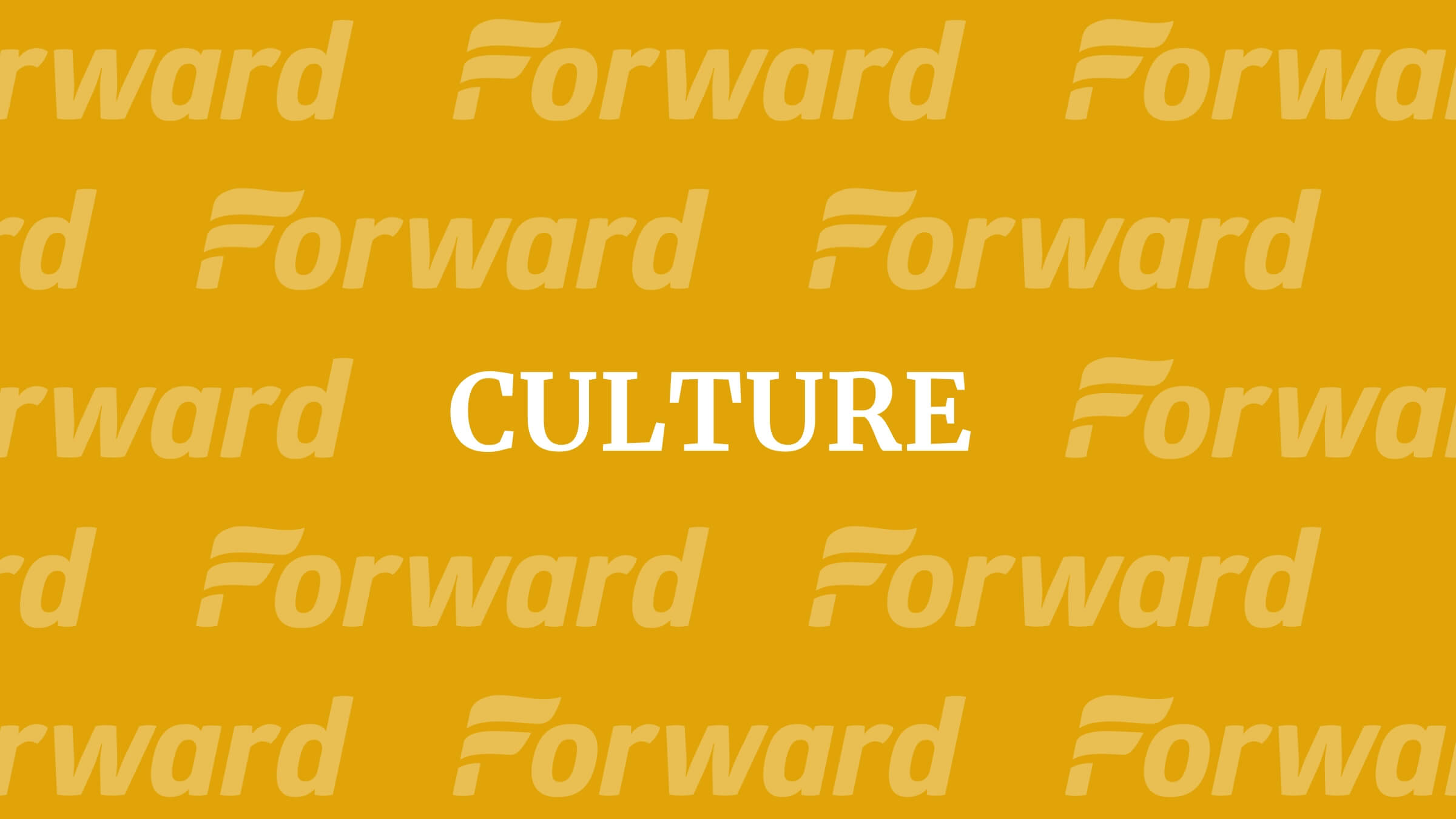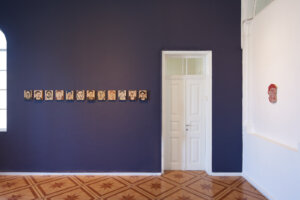In Israel, an artist confronts his demons — and urges us to face our own
The Haifa-based Shahar Sivan has created a forest full of nightmares

Graphic by Angelie Zaslavsky
Born in Jerusalem in 1977, Haifa-based artist Shahar Sivan has been called one of the fathers of the Haifa underground art scene. His new solo exhibition, “Morning Demons,” on view through Oct. 28 at Haifa’s Beit HaGefen Art Gallery, features his woodcuts, wood sculptures and monotype prints created over the past two years during the COVID-19 shutdown. All the works seem to arise directly from his id. In a shift for the artist, he created these works instinctively, “with no prior plan, model or image.”
At the entrance to the exhibit, the viewer is greeted with a quote from Khalil Gibran: “A good thing about people is that they can’t hide their demons for long.” In these works, Sivan makes no pretense of hiding his demons. Instead, he manifests them so that we can confront our own.
The impact of lockdown
“When lockdown started, the city of Haifa went into stasis. From my studio’s back window which faces the Haifa harbor, a silence started to creep in – which replaced the city’s usual noises,” Sivan writes in a journal created for the exhibition. “I started to examine inner spaces within myself that up until then were dark and unknown. I noticed that the slowing-down of the town’s rhythm and my dwindling communication with the outside world allowed me to explore fears and stories that I couldn’t access in any other circumstance.”
The isolation and quiet of the early days of the pandemic gave him the opportunity to explore and wrestle with his own personal demons, and to create these works, many of which are clusters of human figures. Created in a period of relative isolation, the demons populate several rooms, perhaps to assuage loneliness.

Confronting the demons
In “The Forest,” a gathering of demons composed of 23 human faces confronts visitors, filling the first room, creating a forest of demon-like apparitions. The faces are abstract, their identities unclear, though all are male and resemble each other. One wonders if some or all are representations of the artist himself in his ongoing effort to confront his own demons. Several of the faces writhe, but it’s difficult to tell whether with agony, anger or a mixture of both.
In “Bureaucrats and Survivors,” on display in another room, there’s a similar ambiguity. “It is impossible to tell the bureaucrats from the survivors,” Sivan writes. “Fear works on members of both groups in the same way, causing rage and aggression.”
Weaning off alcohol
One of Sivan’s demons is alcohol. In “Men in a Bar,” he carves into a large wooden panel the faces, chests and torso of three men, all grimacing. Though similar to each other, the faces seem to be in conflict. Perhaps they are three different versions of the artist himself — the addict; the one trying to overcome his addiction; and the one struggling to stay rehabilitated.
“There is a direct link between the series, my weaning off alcohol and my recovery,” Sivan writes. “Exposing my fears puts them at a distance from me and offers a new self-definition — who is the self who is still holding on to fear?”
In “Internal Space,” a series of three monotypes, Sivan draws a set of skulls using masking tape, creating ghostly looking images suggestive of X-rays. But instead of revealing the inner skeleton, they examine the artist’s internal fear of death.
When I finished viewing the last room of the exhibit, and made as if to return to the entrance, I found myself suddenly facing the back side of “The Forest.” At the time I thought this was a view of the room that I wasn’t meant to see. I saw the plain backs of each wood piece, the dates when each was created, the stands used to prop them up. All the works looked so thin.
‘Nothing but fear’
“Every morning I sit with my coffee and my cigarette in front of the world. Protecting myself with my notebook and writing thanks and prayers. Then come the demons — the demons of the morning: what will happen and who are you jealous of. How will you succeed and how will you manage, why did you do it so and not otherwise why did you say what you said,” Sivan wrote in a Facebook post, then adding, “Behind every demon is nothing. Nothing nothing nothing. Nothing but fear. Just an empty air of absence.”
Aha! I realized Sivan wants us to see the back side of “The Forest” creations, as if he’s showing us the small little man behind the Wizard of Oz. Sivan’s works here, his struggle and pain that led to their creation, are meant to give us the courage to make us realize the artifice behind each of our demons, that what animates our demons which torment us is nothing but our fear.






















